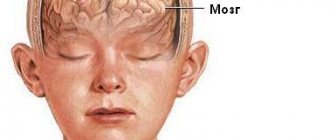Psychological trauma is a broad concept that is used in modern psychology and psychotherapy. Trauma occurs as a result of stress that is excessive for the psyche. The result of psychological trauma is the emergence of various pathological conditions, including depressive and anxious ones.
The patient feels helpless: he no longer feels safe, there is a feeling that he can no longer control his life and be confident in the future. Both psychological and physical (somatic) symptoms may occur. Psychological ones include tension, anxiety, obsessive thoughts about what happened, which are difficult to get rid of, tearfulness, apathy, desire for solitude or, on the contrary, fear of being alone, and others. Psychological symptoms vary greatly depending on personality type and manifest differently in different patients.
If the patient has a tendency to psychosomatic disorders or somatization, somatic symptoms are added: tremor, chronic fatigue, insomnia, discomfort in the heart, shortness of breath, coldness or numbness of the extremities, unsteadiness of gait, “lump in the throat,” abdominal pain and others.
Modern psychotherapy offers complete and high-quality treatment of such pathological conditions. All you need to restore your psyche is to consult a specialist and undergo a full course of treatment.
At CELT you can get advice from a psychiatrist.
- Appointment with a psychiatrist with an extended interview, psychotherapy session - 4,500
Make an appointment
It is important to remember that a traumatized psyche is very fragile, and, therefore, only a specialist can solve psycho-emotional problems. Dealing with trauma on your own increases the risk of retraumatization as a result of constant reminders of the circumstances of the trauma.
Causes, prerequisites and risk factors
It is generally accepted that psychological trauma always happens suddenly. It occurs at a moment when a person is completely unprepared for a shocking event. However, this is not entirely true - it would seem that the relatives of a patient suffering from cancer knew about the advanced pathological process, knew about the stage of the disease and that the doctors did everything they could. However, after their loved one passes away, they may experience a bereavement reaction similar to that of someone who has lost their loved one suddenly, such as in a car accident.
There are conditions that lead to psychological trauma with a high degree of probability:
- The traumatic event happened unexpectedly, nothing indicated such a development of events.
- There was no way to prevent the traumatic event. Or there was such an opportunity, but the patient did not take advantage of it.
- The event was marked by cruelty or injustice.
- There are prerequisites from childhood: the same traumatic event happened many years ago and was not worked through with a specialist.
- The person had an ambiguous relationship with the victim (for example, frequent quarrels or feelings of guilt).
Psychological trauma can be anything - loss, an episode of violence, an accident, an illness, a severe danger to life and health. A traumatic episode can happen to the patient himself, to his relatives or friends, or in front of his eyes.
Long-term negative effects on the psyche can also cause psychological trauma - for example, living in a family with frequent episodes of violence, proximity to criminals or inappropriate people, or a long-term illness. For “sensitive” people with a labile psyche, even a seemingly ordinary event can in some cases lead to trauma, which in such cases is called “adjustment disorder”, but, nevertheless, requires the help of a specialist. Such reasons may be moving to a new city, changing jobs with increased workload and growing demands and competition; even such a joyful event as the appearance of a child in the family (even a beloved and long-awaited one!) can serve as a “trigger” for the development of adaptation disorder.
The most common events that lead to psychological trauma are:
- Domestic injuries, sports injuries.
- Previous surgical operations, especially if the intervention occurred in childhood.
- Death of a loved one.
- Man-made and man-made disasters. Car accidents, plane crashes.
- A breakup in a relationship that meant a lot.
- A humiliating experience, severe disappointment in yourself or others.
You need to understand that the above situations will not lead to psychological trauma for all people. There are some risk factors that increase vulnerability to emotional distress. For some people, a seemingly insignificant event can lead to injury, while others easily tolerate even a long stay in a traumatic environment.
An increased risk is observed in people who are under constant stress. Also at risk are people with childhood traumas, and anyone who has suffered from episodes of depression or anxiety disorder. In such people it is easy to provoke psychological trauma and even easier – re-traumatization. Some patients who are diagnosed with “psychotrauma” have in the past shown a certain predisposition to overreacting - an innate “vulnerability to stress,” otherwise called “emotional lability” by specialists.
Consequences of psychological trauma
Continuing injuries, catastrophic (massive) injuries, acute and sudden, can serve as a source of clinical conditions in which altered states that arise, for example, a post-traumatic effect with justification, can bring deterioration in health, withdrawal from following the norms of the individual’s social life (the possibility of self-affirmation, social prestige, respect for loved ones and surrounding people, etc.).
Psychotraumas can also lead to intimate and personal consequences on a biological and personally destructive level, and provoke psychosomatic diseases, neuroses, and reactive states.
The destructive power of psychotrauma is determined by the subjective significance of the traumatic event for the individual, the strength of spirit or the degree of his psychological security, resistance to life situations or other factors.
Symptoms and signs
Different people react differently to emotional pressure. Therefore, there is no single true and correct reaction to stress. The clinical picture varies greatly depending on the circumstances of the injury and the personal characteristics of the patient.
It is important to understand that there is no single correct reaction; all unpleasant emotions that arise after an injury are normal, this is the body’s individual response to stress.
The following symptoms are identified in the emotional sphere:
- Loss of faith in yourself or in the justice of the world around you.
- Shock and rejection.
- Attempts to isolate yourself from others.
- Rage, anger, irritation.
- Unmotivated mood swings.
- Feelings of guilt, shame, an attempt to take the blame upon yourself.
- Confusion.
- Decreased cognitive function, inattention, impaired concentration.
- Unmotivated fear and anxiety.
Psychological trauma also has physical manifestations:
- Insomnia, sleep disturbance. Frequent nightmares. Increased drowsiness is possible.
- Rapid heartbeat, discomfort in the heart area.
- Pain of varying intensity and localization, not associated with existing somatic diseases.
- Chronic fatigue, fatigue even from light activities.
- Constant tension in the muscles.
- Tremor, sloppiness, lack of coordination.
All these symptoms last from several days to several months. They gradually subside as the trauma is worked through. The thing about emotional trauma is that even when everything seems to have passed, unpleasant memories can resurface and cause retraumatization.
It is important for patients and their loved ones to understand that grief is a natural reaction to psychological trauma. You need to allow yourself to experience unpleasant feelings and stop blaming yourself. The same needs to be done for your loved ones; the support of others is very important during treatment.
Reasons to see a doctor
Recovery may take some time. The amount of time is individual and depends only on the personal characteristics of the patient. There are cases in which you cannot cope without the help of a specialist. These include:
- Unpleasant sensations do not go away for several months, negative emotions do not subside over time.
- Emotional depression affects work and family relationships.
- There is a fear of intimacy, which causes relationships with others to collapse.
- Physical symptoms are observed.
- An avoidance reaction is observed: the patient consciously or unconsciously avoids activities and situations that are reminiscent of the events of trauma.
- The patient uses alcohol, smoking or drugs to get rid of oppressive emotions.
During the treatment process, the specialist suggests confronting the trauma events again and finally working through them. Treatment takes some time. Unfortunately, you cannot get rid of unpleasant sensations by “willpower” alone. Only time and work with a specialist will help. Therapy takes place in several stages:
- Processing traumatic memories, feelings, emotions.
- Working through physical symptoms, learning to control the physical reaction to stress.
- Emotional control training.
- In some cases, it is necessary to include psychopharmacotherapy. In this case, mild, “gentle” drugs are prescribed that do not have a negative effect on everyday functioning and do not reduce performance, to which “addiction” does not form and does not develop “dependence syndrome”. Our specialists will discuss in detail with the patient all possible undesirable effects that may arise and will take into account the individual characteristics and preferences of the patient.
The key to successful therapy is time and completion of the full course of recommended treatment. The CELT clinic employs the best psychotherapists who will help you overcome any psychological problems. Attention and concern for each patient became the key to recovery for hundreds of happy visitors to the clinic.
Make an appointment through the application or by calling +7 +7 We work every day:
- Monday—Friday: 8.00—20.00
- Saturday: 8.00–18.00
- Sunday is a day off
The nearest metro and MCC stations to the clinic:
- Highway of Enthusiasts or Perovo
- Partisan
- Enthusiast Highway
Driving directions
What childhood traumas hinder us in adult life: we’ll sort it out with a psychologist
During childhood, many boys and girls experience stress and emotional tension. But for some they do not have a strong impact, for others they can remain a deep wound in the soul. People can carry psychological trauma throughout their lives: this is reflected in the style of communication with others. A person who has experienced mental trauma in childhood may find it difficult to build harmonious relationships and is often unhappy in his personal life. Any event that is significant for a child can cause mental trauma. Family psychologist Klavdiya Blonskaya told us how they interfere with us in adult life.
Factors causing injuries can be divided into several groups:
Diseases
Trauma can be caused by some chronic disease, the treatment of which involves pain, anxiety and stress in the child. Frequent colds can also have an effect on your mental state. Parents tend to overprotect sick children, limiting them in many ways. The child is told that he is sick, weak and different from his peers. As a result, having matured, a person is overly attentive to his health, sometimes pathologically, often suspicious for no reason.
Pressure from adults
As a result of any violent actions on the part of adults, their pressure, the child experiences fear, he is unsure of himself, and is often aggressive. A physically punished child is always a humiliated child. Even a raised voice, screaming, especially physical punishment can cause mental trauma, especially if this happens constantly. It seems to parents that in this way they are raising a child, in fact they are traumatic. Only specialists can cope with the consequences of sexual violence.
Betrayal by adults
The child develops a feeling of guilt and difficulties in relationships with society. As a result, he places excessive demands on himself and on his future partner, which sometimes causes difficulties in finding a spouse and frequent conflicts in the family.
Sometimes children begin to blame themselves, and this affects their entire future life, the formation of self-esteem, and the sphere of communication.
Death of a relative
An event that turns a child’s life upside down, as a result of which he withdraws, stops communicating, and changes his worldview. Here the consequences can be very different. The child withdraws and begins to blame himself; in these cases, support, understanding from loved ones and significant people, as well as psychotherapeutic help are needed.
Parental addiction
A child left to his own devices and constantly feeling responsible for adults rarely grows up to be a psychologically healthy person. This is, as a rule, a traumatized person who has a hard time getting used to new conditions and people; he strives for total control of everything around him, suffers, is afraid of mistakes and always has a distrust of the world.
“There are psychological symptoms that will help you understand when a child needs help from a psychologist. As a rule, a traumatized child experiences changes in behavior and emotional state, unstable mood, the child is anxious, there is a lack of concentration, and isolation,”
says the specialist.
There are also certain physiological changes. The child sleeps poorly, his performance is reduced, he becomes overly fussy and tense. If you have several signs at the same time, you should contact a psychologist for advice and diagnosis of the child’s condition.
To help
Childhood injuries are dangerous primarily because it is usually impossible to cope with them on your own. Such children need the help of specialists so that in later life they do not exert their detrimental influence on a person’s life and destiny.
If you notice physiological or psychological signs of trauma in your child, talk to him. You may come to the conclusion that you need to go to a specialist together for help. For your safety and to reduce the risk of spreading coronavirus infection, we recommend that you leave a request on the My Family Center portal. All consultations take place online. Our employee will contact you within one business day.
Source
Press service of the Department of Labor and Social Protection of the Population of Moscow









